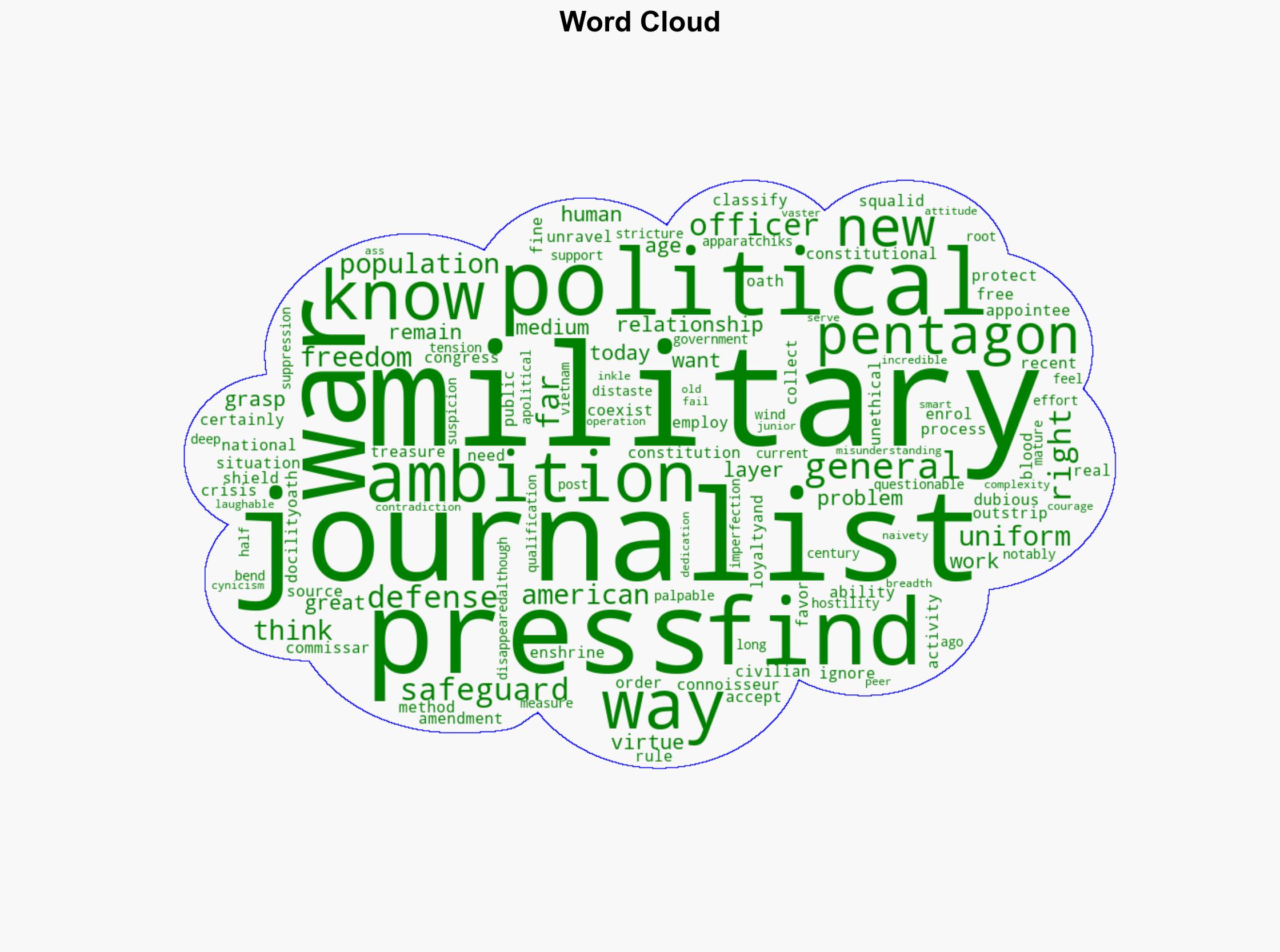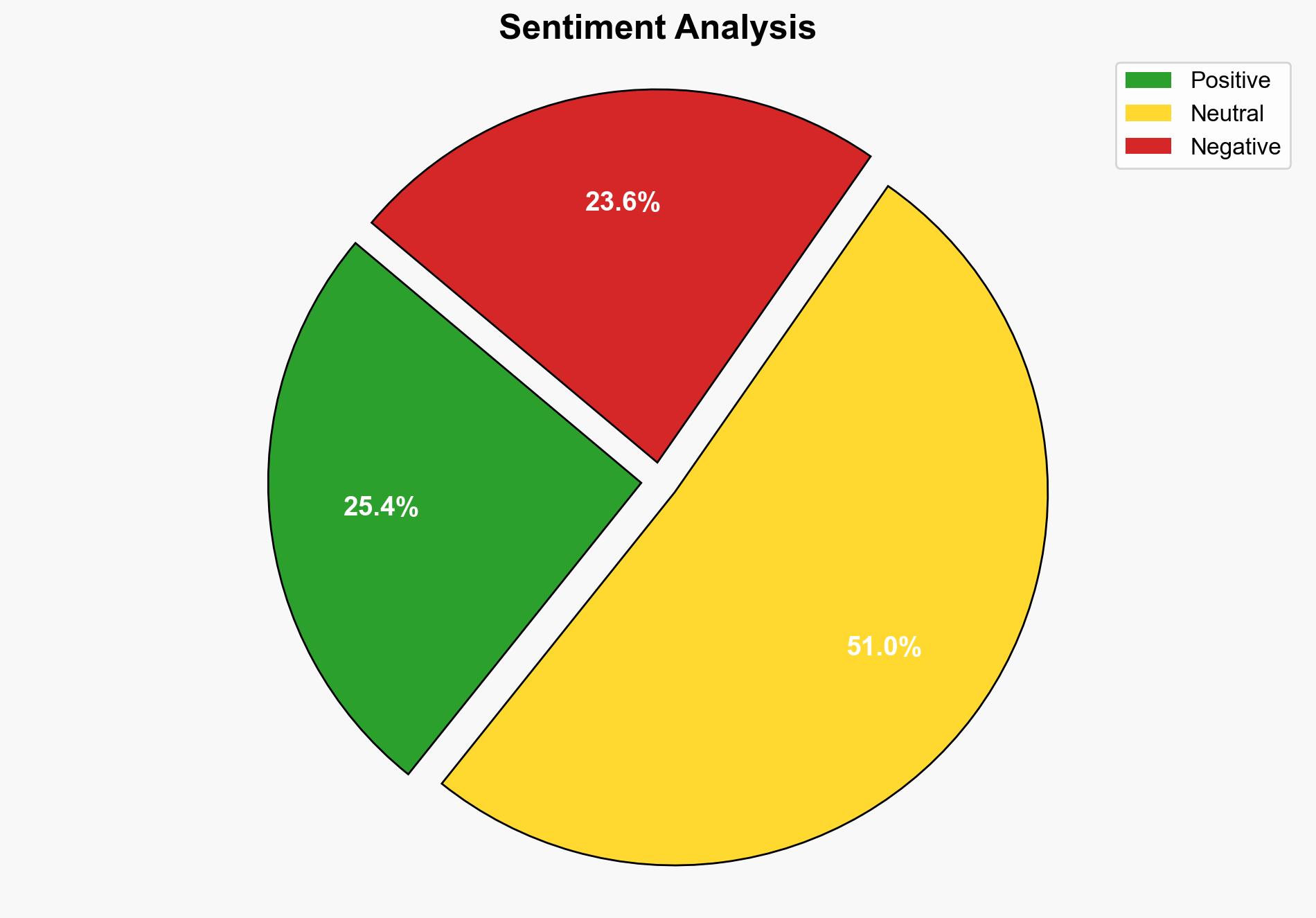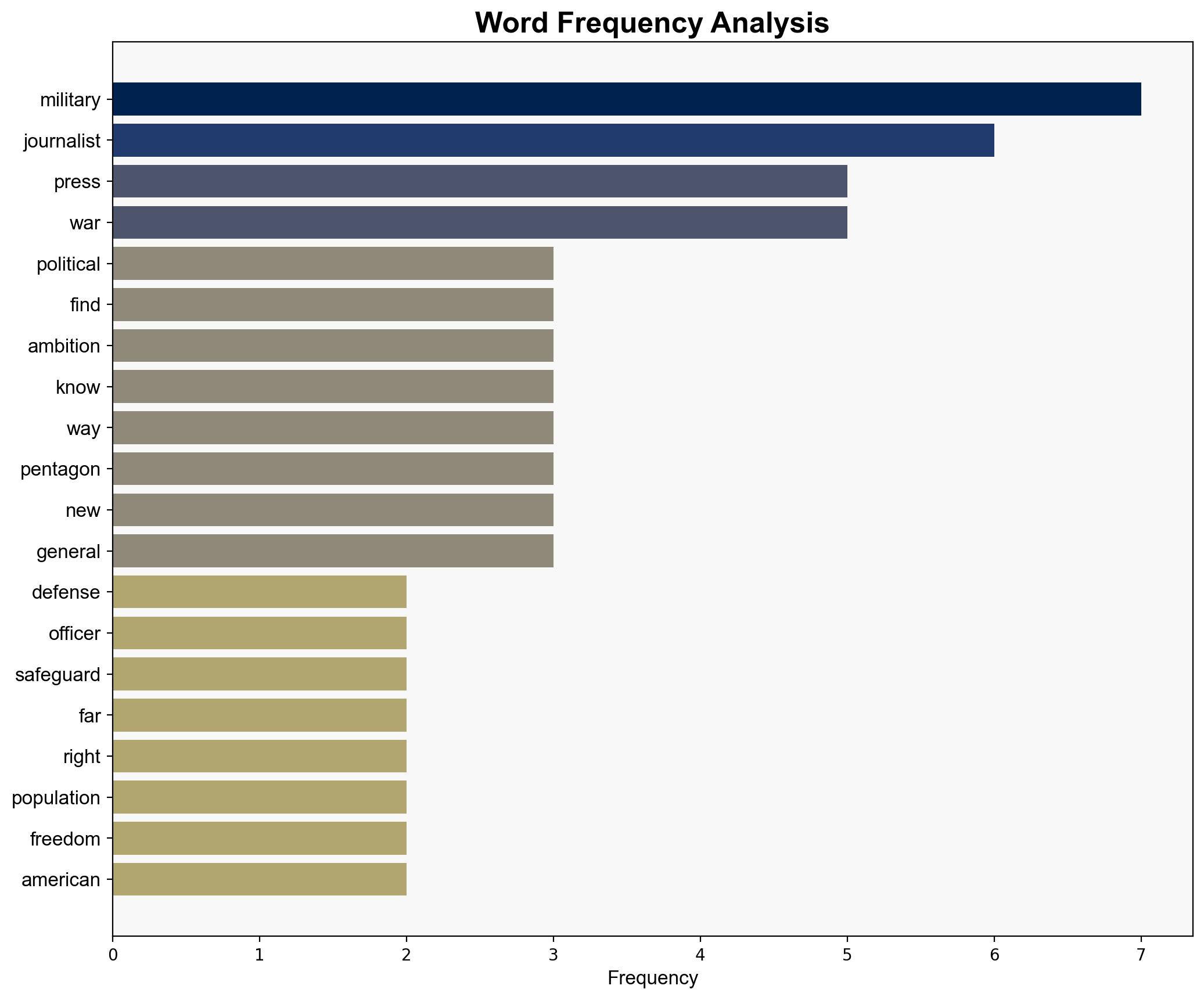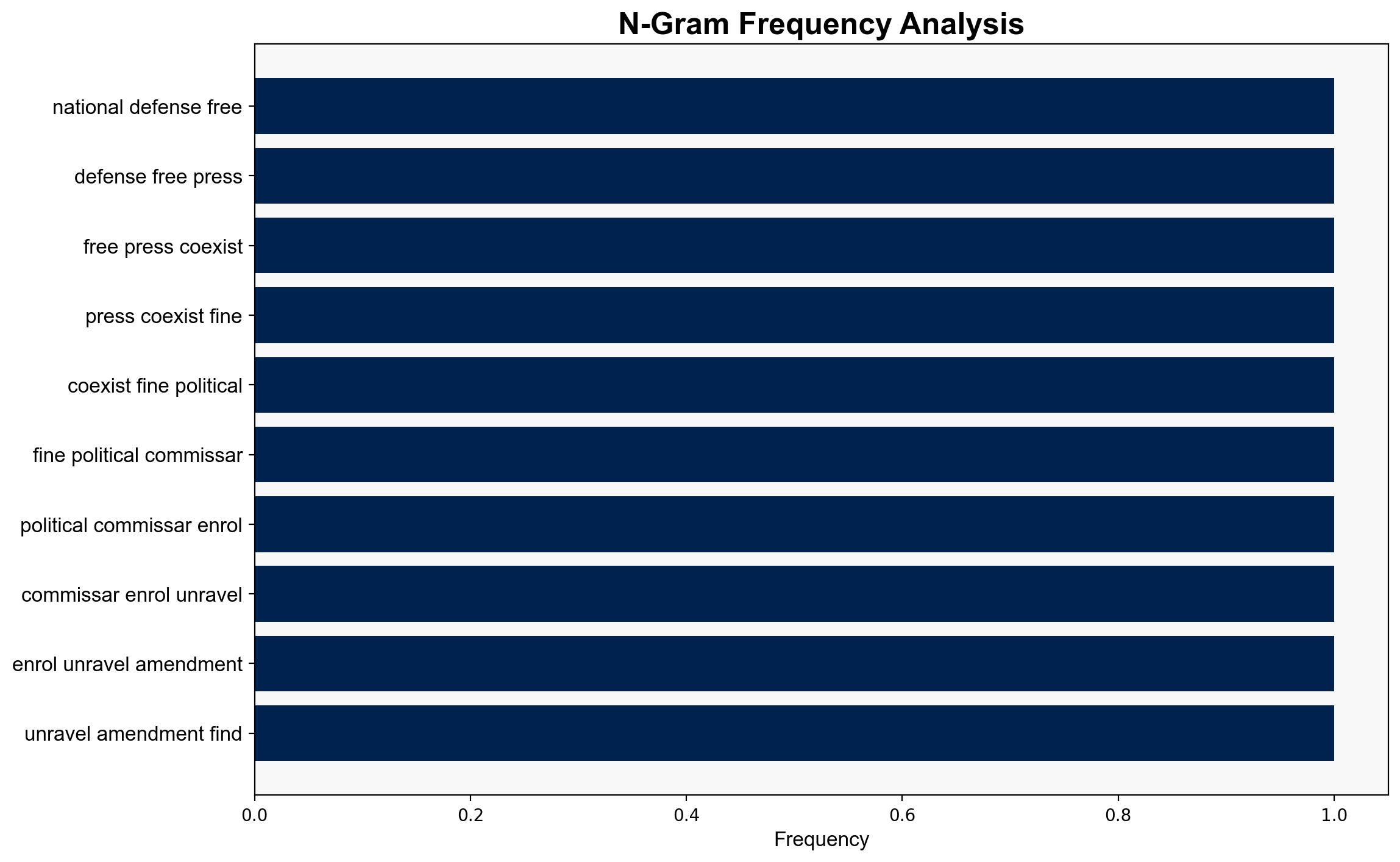Darkness at the Pentagon – Hoover.org
Published on: 2025-10-27
Intelligence Report: Darkness at the Pentagon – Hoover.org
1. BLUF (Bottom Line Up Front)
The analysis suggests a moderate confidence level in the hypothesis that recent tensions between the Pentagon and the press are indicative of a broader trend towards increased political influence over military operations. This could undermine the apolitical nature of the military and erode public trust. Recommended action includes reinforcing the importance of transparency and apolitical conduct within military ranks to maintain public confidence and operational integrity.
2. Competing Hypotheses
Hypothesis 1: The Pentagon’s recent actions reflect a strategic shift towards greater political control over military operations, driven by political appointees with ambitions that exceed their capabilities. This shift aims to align military actions with current political winds, potentially compromising military effectiveness and independence.
Hypothesis 2: The observed tensions are primarily a result of miscommunication and misunderstanding between the military and the press, exacerbated by the complexities of modern military operations and the evolving media landscape. This is not indicative of a deliberate political maneuver but rather a natural friction point in civil-military relations.
Using the Analysis of Competing Hypotheses (ACH) 2.0, Hypothesis 1 is better supported due to the historical context of political appointees influencing military decisions and the explicit mention of efforts to bend the military to political will.
3. Key Assumptions and Red Flags
– **Assumptions:** Hypothesis 1 assumes that political appointees have significant influence over military operations. Hypothesis 2 assumes that the press and military are fundamentally aligned in their objectives but suffer from communication barriers.
– **Red Flags:** The potential bias in the source towards portraying military actions as politically motivated. Lack of specific examples or data supporting the scale of political influence.
– **Blind Spots:** The report does not address potential internal military resistance to political influence or the role of external geopolitical pressures.
4. Implications and Strategic Risks
– **Political Influence:** Increased political control over military operations could lead to decisions that prioritize political gains over strategic military objectives, risking operational effectiveness.
– **Public Trust:** Erosion of trust in military institutions if perceived as politically compromised.
– **Geopolitical Risks:** Potential for adversaries to exploit perceived weaknesses in U.S. military decision-making.
– **Cyber and Information Warfare:** Heightened risk of misinformation campaigns targeting both military and public perceptions.
5. Recommendations and Outlook
- Enhance transparency in military operations and decision-making processes to rebuild trust with the press and public.
- Conduct workshops to improve communication and understanding between military personnel and journalists.
- Scenario-based projections:
- Best Case: Strengthened civil-military relations through improved transparency and communication, leading to enhanced public trust.
- Worst Case: Deepening political influence results in compromised military operations and significant public distrust.
- Most Likely: Continued friction with periodic improvements as both sides adapt to new communication strategies.
6. Key Individuals and Entities
– Not specified in the source text. Focus remains on the broader institutional dynamics between the Pentagon and the press.
7. Thematic Tags
national security threats, civil-military relations, media influence, political control




